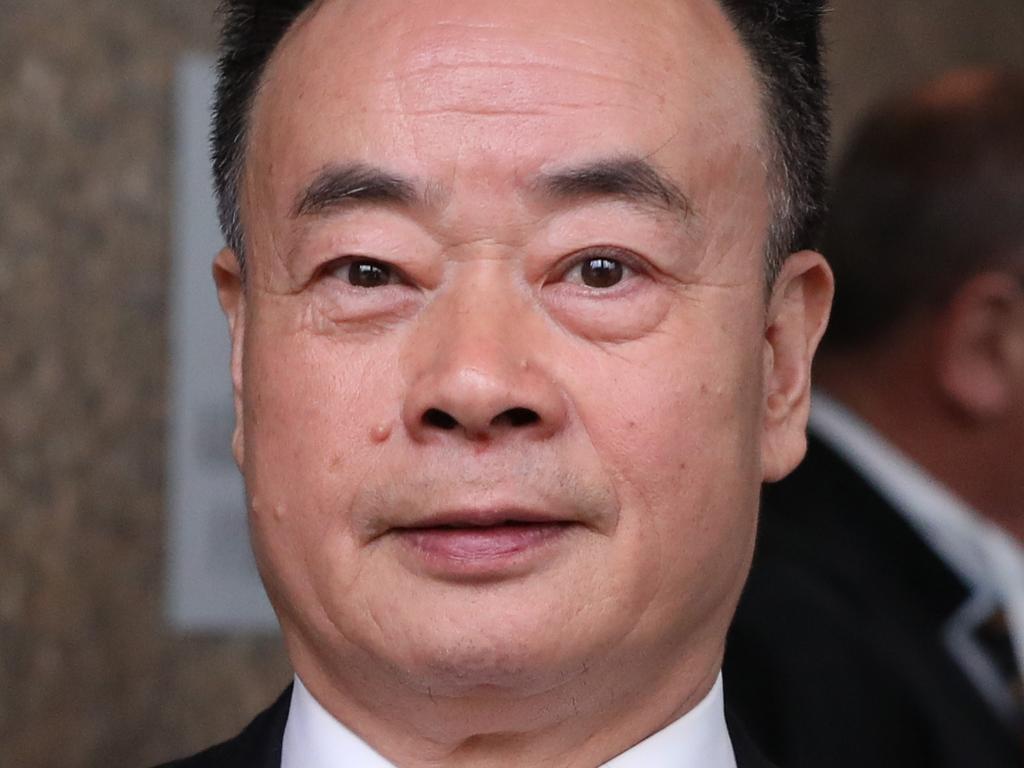West Australian ban thwarts AUKUS submarines tour
A high-level AUKUS delegation to help fast-track nuclear submarines has been forced to postpone a visit due to the McGowan government’s strict quarantine requirements.

A high-level AUKUS delegation to Australia to help fast-track the nation’s nuclear submarines has been forced to postpone a planned visit to Western Australia’s HMAS Stirling – home of the Collins-class subs – due to the McGowan government’s strict quarantine requirements.
The delegation includes top US and UK officials, including Admiral James Caldwell, director of the US Naval Nuclear Propulsion Program, and UK Defence Nuclear Organisation head Vanessa Nicholls.
The US co-ordinator for AUKUS initiatives, Dr James Miller, is also heading to Australia with the 10-person mission, hosted by the head of Australia’s AUKUS nuclear-powered submarine task force, Vice Admiral Jonathan Mead.
The experts will arrive in Australia on Thursday to tour Adelaide’s Osborne naval shipyards, and visit Australia’s only nuclear reactor at Sydney’s Lucas Heights.
They will also stop in Canberra to meet with Admiral Mead’s task force, and visit Melbourne for further talks with Defence officials.
The delegation had hoped to inspect Australia’s main submarine base at HMAS Stirling in Perth, where the planned nuclear boats would be based.
But Defence was informed its members were unlikely to receive exemptions to enter the state without quarantine, under WA’s hard border rules.
The US and UK have vowed to help deliver Australia’s planned eight nuclear submarines “at the earliest possible date” under the trilateral AUKUS partnership, after initial forecasts the first would not be in the water until at least 2040.
WA’s hard border regime has been notoriously impervious for much of the pandemic.
Until February 5, when the restrictions were partially eased, people trying to return to WA from states to visit dying relatives or attend funerals were barred from entry if they were from a state experiencing a large-scale outbreak.
The rules were changed earlier this month to allow people with family connections or compassionate reasons to travel to WA on the condition they isolate upon arrival. That isolation period for people entering WA from overseas or interstate has since been trimmed from 14 days to seven.
Exemptions to that isolation requirement have proved all but impossible to obtain, although several sporting teams – most recently two AFLW sides from Victoria – have received special authority to enter the state on the provision they instead observe strict biosecurity protocols.
The requirement to isolate upon entry extends to the uppermost reaches of politics. Scott Morrison and Anthony Albanese would both need to isolate for a week if they entered WA under the current rules, and have had to amend their election campaign strategies accordingly.
Even WA Premier Mark McGowan faces the prospect of being caught up in the isolation requirements, given he will have to travel to Sydney later this month to testify in his defamation battle with Clive Palmer. The Premier will be required to isolate for a week upon his return.
Mr McGowan on Tuesday flagged that the end of the border rules may be nearing, telling reporters a new date could be set by the end of this month.
“We are reviewing (the border restrictions) as we speak. We are going to review it over February and no doubt we will reach an announcement some time in February,” he said.
“The reality is though that we are getting the third dose vaccination rate up, the eastern states appear to be coming off their peak, which is a good thing. We are getting children vaccinated, and every thing we are doing every single day is saving many West Australian lives.”
Admiral Mead’s task force has been given 18 months to examine every aspect of the nuclear submarine acquisition, including the planned design, regulatory issues, and how they will be built in Adelaide as promised by the Morrison government.
US Secretary of State Antony Blinken told The Australian last week the US was “focused very intensively on the pathways to the submarines, looking at what the most efficient and effective pathway would be”.
“That’s being very actively looked at by our experts right now,” he said.






To join the conversation, please log in. Don't have an account? Register
Join the conversation, you are commenting as Logout